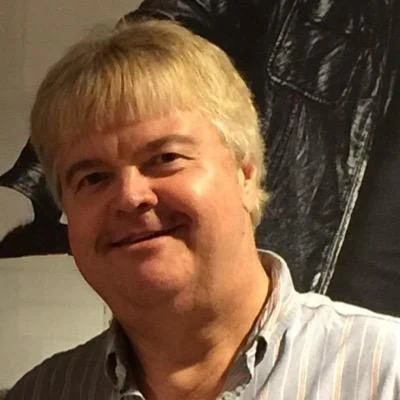Barrett Media produces over 20 stories per day on the music, news, and sports media industries. To make sure you’re updated on the latest happenings across the media business, sign up for our newsletters to get the news delivered straight to your inbox.
Buzz Knight is a strategist and media executive. As President of the Boston-based Buzz Knight Media, he brings experience from time with major media companies, including Beasley Media Group and Greater Media.
Knight has had multiple roles, including participation on the National Association of Broadcasters COLRAM (Committee on Local Radio Audience Measurement), Nielsen Advisory Council, and Council for Research Excellence.
He hosts the “Takin A Walk” Podcast series.
He is this week’s featured consultant.
Jeff Lynn: What is the current state of the radio industry?
Buzz Knight: The current state of the radio industry continues in a state of some flux, based on many companies facing debt problems, younger demo listeners more focused on other forms of entertainment, local and national business migrating to digital giants and inconsistent economic headwinds.
The paradox regarding your question on the state of the industry, once again, was demonstrated with the recent Helene storm disaster, where radio played a significant role in many communities. It is providing an incredible lifeline, shining with passion and perseverance when needed.
JL: How does radio stay relevant when the talent pool is shrinking, the commercial loads are increasing, and there are many other audio delivery choices?
BK: By being so hyper-focused on what matters in their local community that they are thee go-to source for entertainment, news and information, and community engagement. Take those very familiar basics that have existed for years and then focus on delivering those audience needs on every available platform within their reach, of course, including OTA. If radio can develop a proficiency to find new audience on these other platforms, it can at least attempt to keep up with the rest of the “media noise.”
JL: What are the three top takeaways in coaching talent?
BK: 1) The art of improvisation is an important trait for great talent. This has unfortunately taken a back seat to the talent directive regarding a “brevity with substance” approach, which, while crucial, can sometimes stifle creativity. 2)Building anticipation with the art of the tease is a lost art form. 3)You can’t force talent to be someone they are not.
JL: How should local talent go about extending their brand into podcasting?
BK: By tapping their passions and adding to their brand with the artfulness and experimentation that podcasting brings. Local talent’s time-shifted over the air content is many times wasted content in that it often isn’t being repurposed or monetized. If properly done, this is an easy first step in helping local talent to extend their brand into podcasting.
JL: In times of shrinking or, more likely, no budget, what can stations do to market outside its cume?
BK: Find new partnership opportunities, be on every available platform and be topical and in the moment. We are in desperate need of a creative shakeup as well that would serve to market outside of existing cume. Let’s see more imagination rather than checking the promotional box. This type of promotion used to be what radio companies did.
JL: Can contesting still be done that “force listening?”
BK: Yes it can, but programmers and marketers need to shake the creative tree and attempt new ways to create occasions of listening. See question 5. One story on the problems of radio stations often just mailing it in. Years ago a major artist manager in conjunction with the concert promoter was trying to put together a game plan for one of his artists upcoming tour. He solicited promotion requests from across the country. 98% of what he received in the promotional proposals was exactly the same. This is, unfortunately, a powerful story to make the point of differentiation.
JL: How do you feel when you hear a station doing a caller number nine promotion?
BK: I generally want to throw up. This is the best they could come up with? It’s time for stations to get busy and create new promotional magic.
JL: Do you have a tip for busy programmers on how to work more efficiently through AI?
BK: Use the best tools at your disposal to help your workflow but keep a human touch to the work generated to ensure quality. AI is a powerful tool, but it has imperfections as well that need to be safeguarded.

JL: Having so much data at programmers’ fingertips, is there still a place for “gut?”
BK: It is mandatory to follow science with a dash of gut instinct. Data isn’t perfect all of the time and it requires a “sniff test” that must come from the gut.
JL: What is the best career advice you ever received?
BK: Think like a fan, make everyone a star.” John Mcghan was a mastermind programmer who many years ago was instrumental in tremendous breakthrough work while being a programmer for Taft Broadcasting and leading the charge at NBC’s young adult news network “The Source”. His words were a guiding force for me back then as a programmer, and they still resonate today as a consultant and as I host and produce two podcasts. Never lose the wild-eyed enthusiasm that fans of any content emote.
Reach Buzz by email here. Check out the website here.
Phone: 857. 472. 0078

Jeff Lynn serves as Editor of Barrett Media’s Music Radio coverage. Prior to joining Barrett Media, Jeff spent time programming in Milwaukee, Omaha, Cleveland, Des Moines, and Madison for multiple radio groups, including iHeartMedia, Townsquare Media, NRG Media, and Entercom (now Audacy). He also worked as a Country Format Editor for All Access until the outlet shut down in August 2023.
To get in touch with Jeff by email, reach him at Jeff@BarrettMedia.com.




